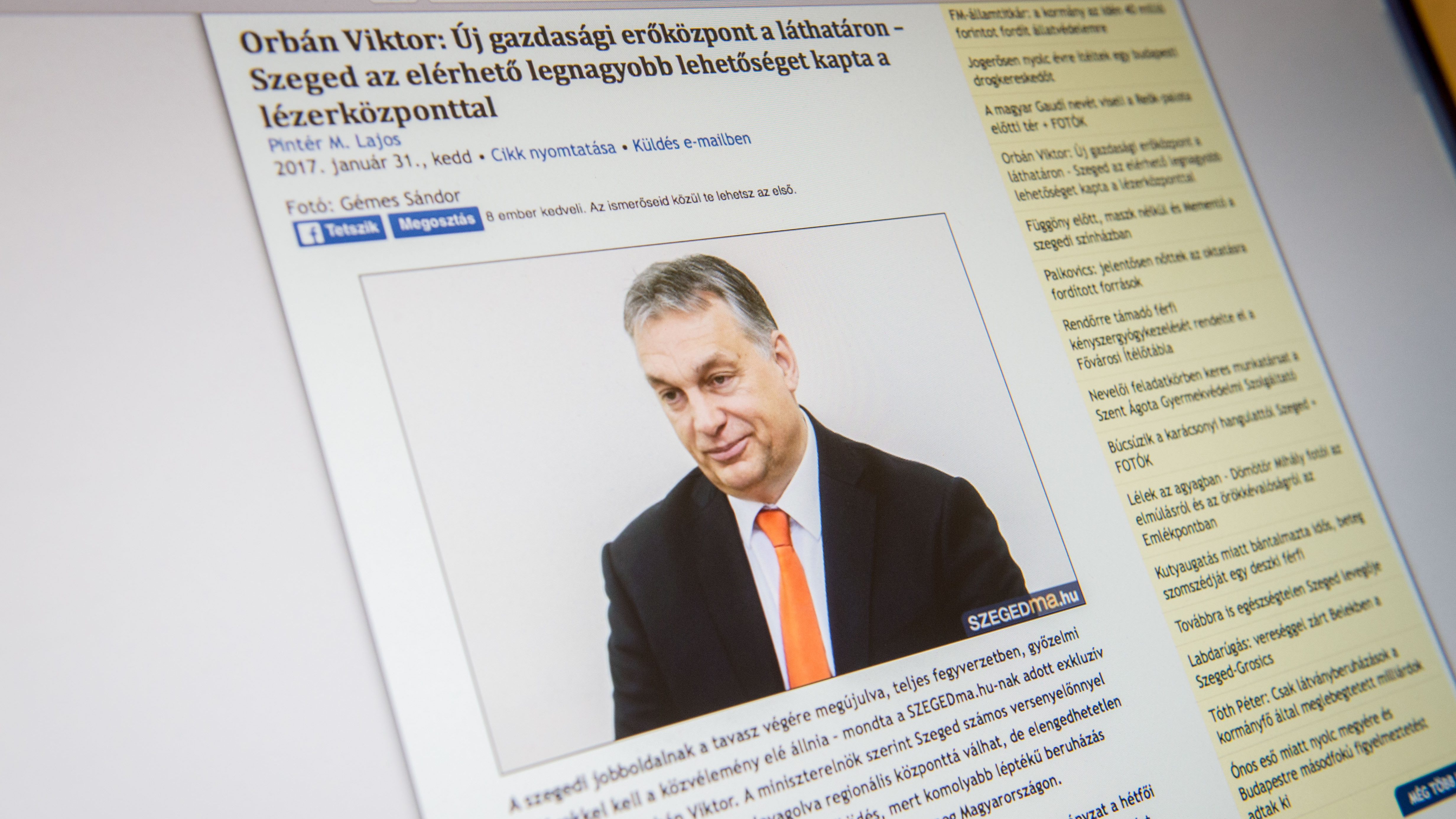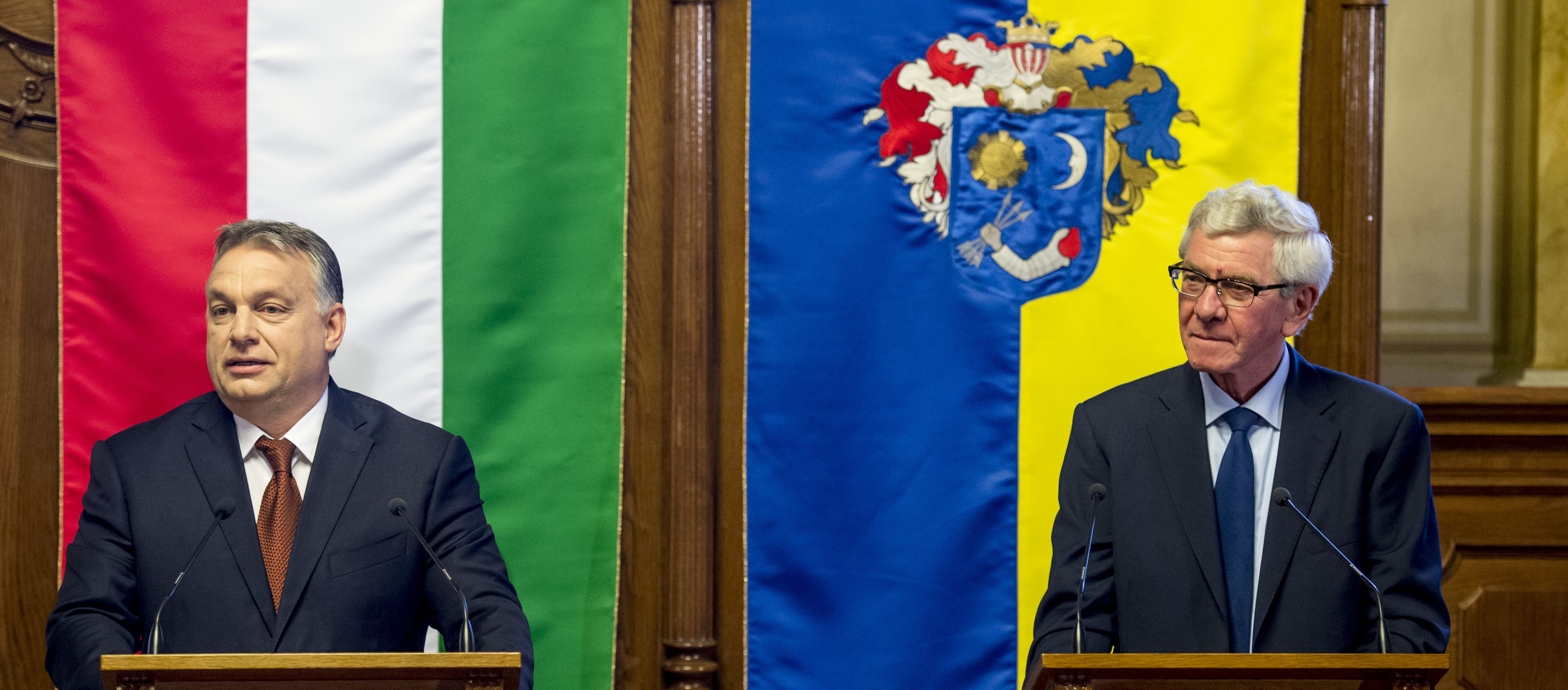
“From the south, Szeged is the gateway to Europe, and from Europe’s perspective it is the gateway to the Balkans”, Mr. Orbán said. “There may be larger cities in the region, which also includes parts of Romania and Serbia”, he said, “but there are very few cities like Szeged – which have been so beautifully built, planned and organised, and which represent such a high level of quality in terms of university education and cultural life”.
The Prime Minister explained that the 50–70-billion forint development package that Szeged will receive as part of the Modern Cities Programme was concluded on Monday in almost three hours of negotiations with Mayor László Botka (MSZP). “The talks were totally free of party political issues; all we were concerned with was what would serve the interests of the people who live here, and how the Government and the local municipality could cooperate to achieve this”, he added.
The Prime Minister also noted that, while many countries in the region are suffering from government crises and the resulting uncertainty, Hungary is characterised by political stability and by an administration that strives to cooperate with opposition-led municipalities, such as Szeged. “Hungary – and therefore Szeged – can profit greatly from the advantages provided by political stability, joint planning and rapid decision-making”, he said.
Mr. Orbán stressed that an extremely important government investment project has been realised in the city with the construction of the ELI-ALPS Laser Research Centre. “It is no accident that the Government’s choice for the project’s site was Szeged, where there is space for the establishment of an industrial park adjacent to the scientific facility. Together the University, the Laser Centre and the industrial park could combine to create a fantastically high-quality centre of economic power”, he added.
“With the Laser Centre, Szeged has received the greatest available opportunity: nowhere else could a project representing such a high level of scientific and technical quality have been realised from state funding. What the Government and the City of Szeged must now work on is to “jointly exploit” the advantages presented by the project”, the Prime Minister highlighted.
“The transport projects funded by the Government – such as the suburban railway being constructed in the direction of Makó and the development of the M47 road as a dual carriageway – also serve to increase the city’s competitiveness”, he said.
The Prime Minister said it is self-evident that Szeged and Hódmezővásárhely should be considered within a single region. The two settlements are destined to cooperate, he added, and in this regard the Government has done what it could: it has linked the two cities with a better-quality road, and this linkage is the aim of the tram-train project, which is in the pipeline.
Speaking about sport-related developments, he said that, in line with its earlier decision, the Government will be establishing a youth and family centre, in cooperation with the Szeged-Csanád Roman Catholic Diocese, and which will also serve as a football stadium. A 7-billion forint (EUR 22.5M) indoor swimming pool, which will also be suitable for international-level aquatics competitions, will be constructed in the city, while a modern handball arena will be built next to it, and the Government has also undertaken the costs of establishing a modern outdoor athletics centre in Szeged.
Mr. Orbán told the press that in 2014 the people of Szeged had entrusted one of the city’s two parliamentary mandates to Fidesz, but not the other. After this the party did not perform as well at the local government elections as was expected on the basis of the civil, national and Christian parties’ national results. “We will make changes and we will improve”, he declared. “By late spring, Szeged’s renewed Fidesz group must present itself to the public, fully armed and with a good chance of winning”, the Prime Minister and President of Fidesz said.

